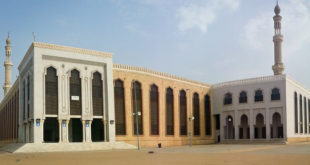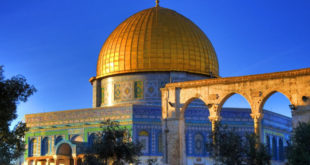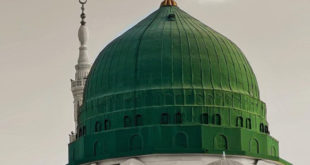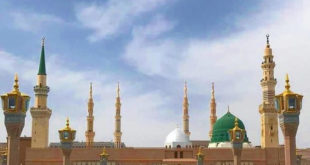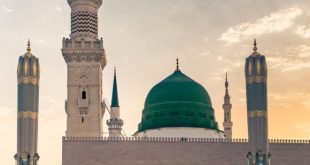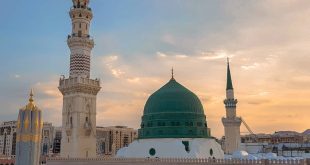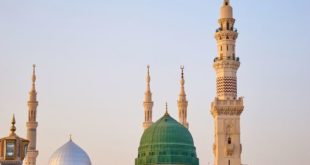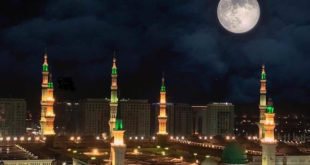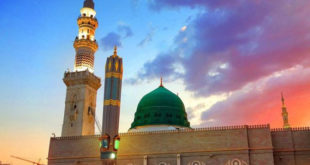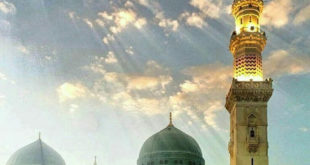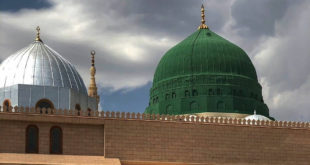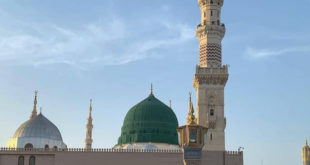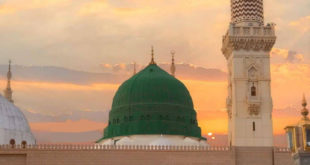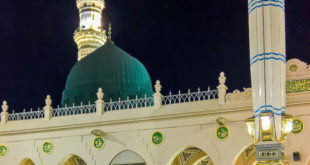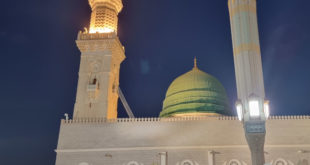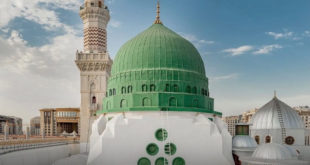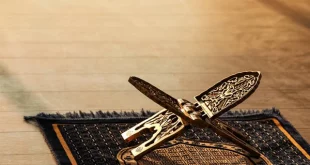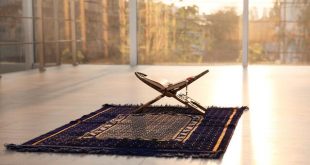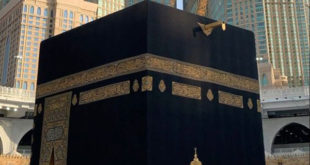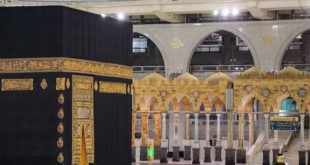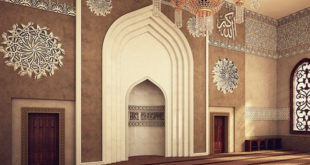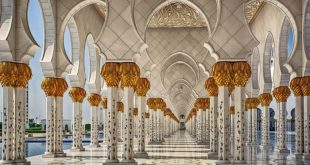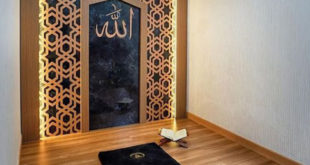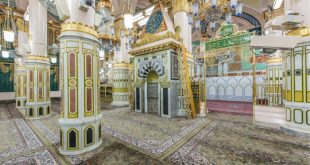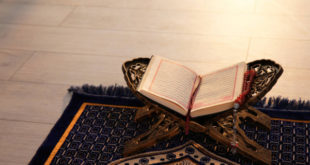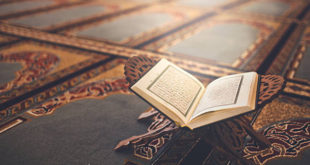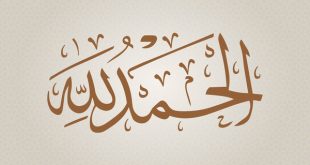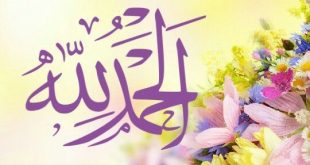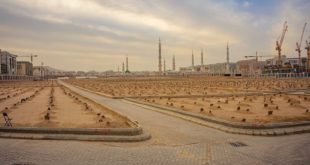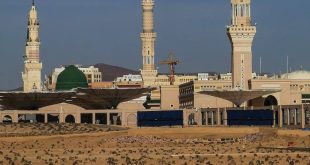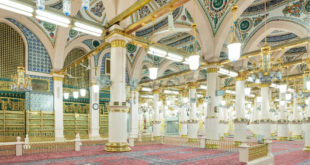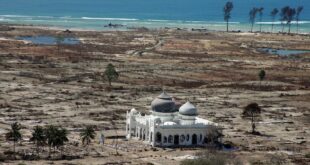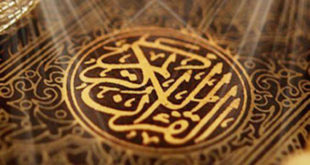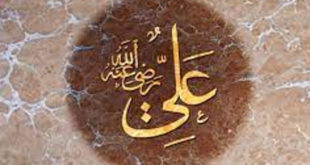Nabi Ebrahim (‘alaihis salaam) was a very great and special Nabi – he was known as ‘Khaleelullah’ which means ‘the special friend of Allah Ta‘ala’. Nabi Ebrahim (‘alaihis salaam) always wanted to have children, but for years and years and years, he did not have any children. Finally, when Nabi …
Read More »Recent Posts
July, 2022
-
5 July
Dua on the day of Arafah
On the day of Arafah, one should recite the following dua abundantly: لَا إِلٰهَ إِلَّا اللهُ وَحْدَهُ لَا شَرِيْكَ لَهُ لَهُ الْمُلْكُ وَلَهُ الْحَمْدُ بِيَدِهِ الْخَيْرُ وَهُوَ عَلٰى كُلِّ شَيْءٍ قَدِيْرٌ There is no deity besides Allah Ta‘ala alone, who has no partner. To Him belongs the kingdom (of the …
Read More » -
4 July
The Formula to become the Qutub of the Time
Hazrat Moulana Muhammad Ilyaas (rahmatullahi ‘alaih) once mentioned the following: The Hadith of Hazrat Abu Sa’eed Khudri (radhiyallahu ‘anhu) is well known, wherein Rasulullah (sallallahu ‘alaihi wasallam) said, “Whichever one of you sees a wrong taking place, then he should prevent it with his hand. If he does not have …
Read More » -
4 July
Hazrat Abu Fukaihah Juhani (radhiyallahu ‘anhu)
Abu Fukaihah was the title of the Sahaabi named Yasaar. However, he was better known by his title of Abu Fukaihah. He was the slave of Safwaan bin Umayyah. Umayyah bin Khalaf would sometimes get a rope tied to his feet after which he would drag him around. At times, …
Read More » -
4 July
Hazrat Khabbaab bin Aratt (radhiyallahu ‘anhu) – Part Two
Hazrat Khabbaab bin Aratt (radhiyallahu ‘anhu) says: In the pre-Islamic days of ignorance, I was a blacksmith and would make swords. On one occasion, I made a sword for ‘Aas bin Waa’il. When the time came for him to pay me for his sword, he said, “I refuse to pay …
Read More »
-
Tafseer of Surah Naazi’aat
وَ النّٰزِعٰتِ غَرۡقًا ۙ﴿۱﴾ وَّ النّٰشِطٰتِ نَشۡطًا ۙ﴿۲﴾ وَّ السّٰبِحٰتِ سَبۡحًا ۙ﴿۳﴾ فَالسّٰبِقٰتِ سَبۡقًا ۙ﴿۴﴾ …
Read More » -
The Extreme Generosity of Hazrat Talhah (radhiyallahu ‘anhu)
-
Securing the Blessings of Ramadhaan, Umrah and Hajj – The Tolerance of Rasulullah (sallallahu ‘alaihi wasallam) – The Orchards of Love – Part Seventy Three
-
Receiving the title of Al-Fayyadh from Rasulullah (sallallahu ‘alaihi wasallam)
-
Hazrat Talhah (radhiyallahu ‘anhu) Fulfilling his Pledge
-
Receiving Seventy Rewards
Hazrat Abdullah bin Amr bin Aas (radhiyallahu ‘anhuma) reported, “Whoever sends salutations upon Nabi (sallallahu ‘alaihi wasallam) once, Allah Ta‘ala and His angels will send seventy mercies and blessings upon him in return of his one Durood. Hence, whoever wishes to increase his Durood should increase it, and whoever wishes to decrease his Durood should decrease it (i.e. if he wants to earn great rewards, then he should increase his Durood).”
Read More » -
Increase in Sustenance
-
The Reward of Fasting on the Day of Arafah
-
The Angel that Stands at the Blessed Grave of Hazrat Rasulullah (sallallahu ‘alaihi wasallam) to Convey the Durood of the Ummah
-
Reciting Durood when Entering the Musjid
-
Sunnats and Aadaab of the Host – 2
2. Entertaining and hosting guests is a means of attaining great barakah (blessings) from Allah …
Read More » -
Sunnats and Aadaab of the Host – 1
-
Sunnats and Aadaab which every person needs to adhere to in his individual life – 9
-
Sunnats and Aadaab which every person needs to adhere to in his individual life – 8
-
Sunnats and Aadaab which every person needs to adhere to in his individual life – 7
-
Hazrat Ali (radhiyallahu ‘anhu) – Part Forty-One – Being Sent by Rasulullah (sallallahu ‘alaihi wasallam) to Level the Graves, Destroy Idols and Erase Pictures
Hazrat Ali (radhiyallahu ‘anhu) reports that on one occasion, Rasulullah (sallallahu ‘alaihi wasallam) attended a …
Read More » -
Rasulullah (sallallahu ‘alaihi wasallam) Approving of the Verdict of Hazrat Ali (radhiyallahu ‘anhu) – Part Forty
-
The True Ulamaa – Hazrat Ali (radhiyallahu ‘anhu) – Part Thirty Nine
-
Du‘aa for Assistance in Settling Debts – Hazrat Ali (radhiyallahu ‘anhu) – Part Thirty Eight
-
The Concern of Hazrat Ali (radhiyallahu ‘anhu) regarding Business being Conducted According to the Islamic Principles – Part Thirty Seven
 Ihyaaud Deen An Effort to Revive Deen in Totality
Ihyaaud Deen An Effort to Revive Deen in Totality

